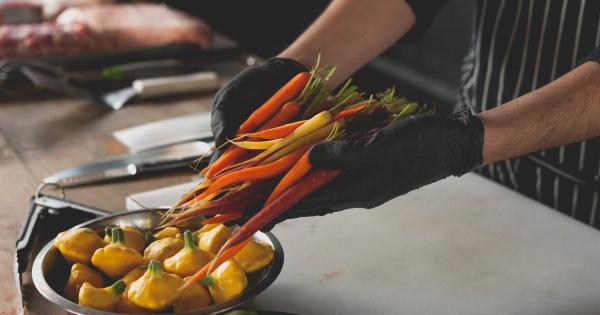Whether you’re planning a road trip, traveling long distances, or simply running errands, keeping your food fresh and safe in your car is essential.
The last thing you want is to discover spoiled or contaminated food when you’re away from home. With proper planning and following a few simple tips, you can ensure that your food stays fresh, delicious, and safe throughout your journey.
In this article, we will explore effective methods to keep your food fresh and safe in your car, so let’s dive in!.
1. Use Insulated Cooler Bags
Insulated cooler bags are a lifesaver when it comes to preserving the freshness of your food. These bags are designed to keep the temperature of the contents regulated, preventing spoilage.
Invest in a good quality insulated cooler bag that is spacious enough to accommodate all your food items. Opt for bags with extra insulation layers or built-in cooling systems for longer trips or hot weather conditions.
2. Pack Frozen Items
If you know you’ll be on the road for an extended period or need to keep your food cool for a considerable duration, packing frozen items is a great idea.
Frozen foods act as natural coolants and help maintain lower temperatures within your cooler bag. Additionally, as the frozen items slowly thaw, you’ll have a ready-to-eat meal available without the need for external heat sources.
3. Use Ice Packs or Dry Ice
In addition to packing frozen items, ice packs or dry ice are essential for keeping your food fresh and safe.
Ice packs can help maintain a consistent low temperature within your cooler bag, while dry ice can provide even colder temperatures, ideal for items that require deep freezing. Place the ice packs or dry ice strategically within the cooler bag to ensure uniform cooling.
4. Separate Raw and Cooked Foods
It’s crucial to separate raw and cooked foods to prevent cross-contamination and foodborne illnesses. To avoid any potential contamination, use separate containers or sealable bags for raw meats, poultry, and seafood.
Make sure they are securely wrapped and stored separately from ready-to-eat foods such as fruits, vegetables, and cooked meals.
5. Keep Perishable Foods Chilled
Perishable foods, such as dairy products, salads, and deli meats, should be kept chilled at all times. Store these items in the coldest part of your cooler bag to maintain their freshness.
Use a thermometer to monitor the internal temperature of your cooler and ensure it remains below 40°F (4°C) to prevent bacterial growth and spoilage.
6. Optimize Your Car’s Air Conditioning
Your car’s air conditioning system can play a vital role in keeping your food fresh during your journey. Prioritize placing the cooler bag on a back seat within reach of a well-functioning air conditioning vent.
This will help maintain a cooler environment around your food, even on hot summer days.
7. Avoid Direct Sunlight
Direct sunlight can quickly raise the temperature inside your car and spoil your food. Park your car in shaded areas or use sunshades to block direct sunlight from entering.
If possible, cover the cooler bag with a light-colored towel or blanket to provide additional insulation and prevent heat absorption.
8. Secure Your Cooler Bag
When driving, it’s important to secure your cooler bag, preventing it from moving or toppling over and causing a mess or potential damage.
Use seatbelts or bungee cords to keep your cooler bag in place, ensuring it remains upright and doesn’t get jostled around during the journey.
9. Plan Your Meals
Planning your meals in advance can help you pack the right amount of food and reduce wastage. Pack individual portions or pre-portioned meals to minimize the need for frequent opening and closing of food containers, which can let warm air enter.
This way, you can enjoy your meals without compromising the freshness and safety of the remaining food in your cooler bag.
10. Clean and Disinfect Regularly
Regularly clean and disinfect your cooler bag to eliminate any potential bacteria buildup. After each use, wipe down the interior and exterior surfaces with a mild detergent or antibacterial wipes.
Allow the bag to air dry completely before storing it to prevent the growth of mold or mildew.
Conclusion
Keeping your food fresh and safe in your car is easily achievable with proper planning and the right techniques.
Investing in an insulated cooler bag, packing frozen items, using ice packs or dry ice, and separating raw and cooked foods are all crucial steps in ensuring the freshness of your food. Additionally, optimizing your car’s air conditioning, avoiding direct sunlight, and securing your cooler bag will further enhance the effectiveness of your food storage.
Remember to plan your meals, keep perishable foods chilled, and regularly clean and disinfect your cooler bag to maintain optimal freshness and safety. By following these tips, you can enjoy delicious and safe meals on the go!.



























